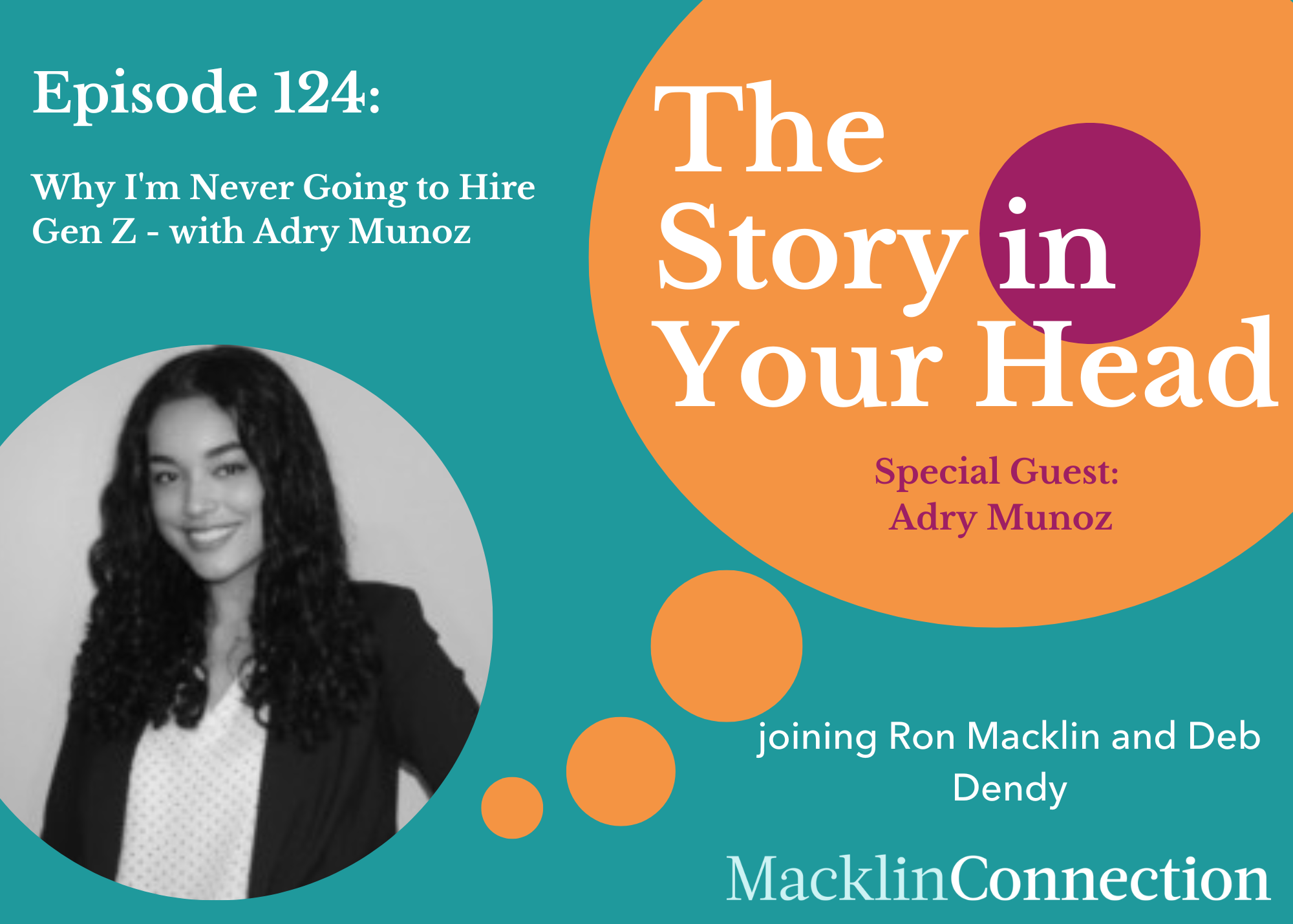Episode Summary
Ron and Deb engage in a thought-provoking conversation with special guest Adry Munoz, a 20-year-old social media coordinator and senior at Michigan State University. Together they explore the narrative behind not hiring Generation Z and delve into the reasons behind this perception. Adry shares insights on how the corporate world's resistance to change, the impact of COVID-19, and the rapid pace of technology influence Gen Z's work attitudes. They also highlight the need for better intergenerational communication and understanding to bridge the divide and foster collaboration in the workplace.
Joined by Adry Munoz, a 20-year-old social media coordinator and marketing intern, we explored the generational divide shaping the workplace and what it means for company culture and the future of leadership development.
Adry introduced herself with enthusiasm, sharing her journey as a Michigan State University senior and her experience navigating a digitally-driven job as a social media coordinator. Her insights set the stage for an engaging discussion on why the Gen Z workforce faces skepticism and how leadership training programs could play a role in bridging that gap.
Challenges Facing Gen Z
Deb initiated the main question: why is there resistance to hiring Gen Z? Adry shared her perspective, deeply rooted in online culture, and observed the contrasting reactions between Gen Z and older generations. She noted the corporate shift and the unease surrounding traditional office environments, highlighting TikTok revelations about dissatisfaction in rigid, office-based roles. This led to a conversation about communication problems across generations and how they affect workplace relationships.
The Office Dilemma
The conversation turned to workspace preferences, with Adry addressing the hesitation towards in-person jobs among Gen Z. Ron Macklin expanded on the concept of office settings, reminiscing about diverse work environments where collaboration was key. Adry admitted to the growing influence of technology and how it might lead to antisocial tendencies, impacting the potential for meaningful workplace interactions and collaborative environments.
Generational Differences in Purpose-Driven Work
Adry emphasized Gen Z's desire for purpose-driven work, a sentiment echoed by Deb, who recounted her experiences of collaboration and creation in office settings. For Adry, meaningful employment means contributing to projects with a greater cause, such as those focusing on mental health, and feeling a connection beyond mere task completion. This brings up the question of how can managers create cultures of purpose and belonging.
Ron reminisced about generational labels, observing how the narrative of younger generations facing criticism dates back centuries. He challenged the notion of dismissing Gen Z entirely, pointing out the missed opportunities for innovation and creativity that hiring Gen Z could unlock for your company.
Adapting to Accelerating Change in the Workplace
The group also dove into the fear surrounding workplace transformation and how the corporate world might be slow to adapt to new digital narratives. Both Adry and Ron discussed the importance of creating spaces that encourage integration and learning between generations. This adaptability is at the core of effective leadership training and executive coaching, which empower leaders to embrace change rather than resist it.
In a poignant segment, Ron reframed the perception of Gen Z from being "lazy" to "lost," suggesting that they're in search of direction rather than avoiding responsibility. He shared stories of mentorship and the importance of guidance from experienced colleagues, emphasizing how these relationships can provide that direction.
Listening and Learning Across Generations
Ultimately, the discussion underscored the need for open dialogue between generations. Adry urged both Gen Z and their predecessors to communicate and share experiences, reminding us all that understanding and adaptability are key to bridging the generational divide in the workplace. Building stronger company culture and addressing communication problems head-on will determine how successfully businesses grow across generations.


